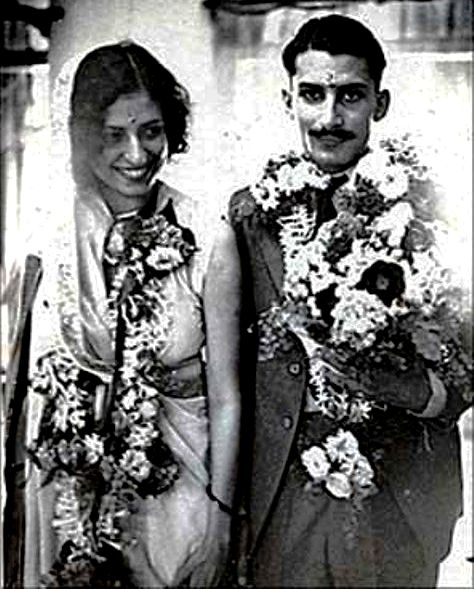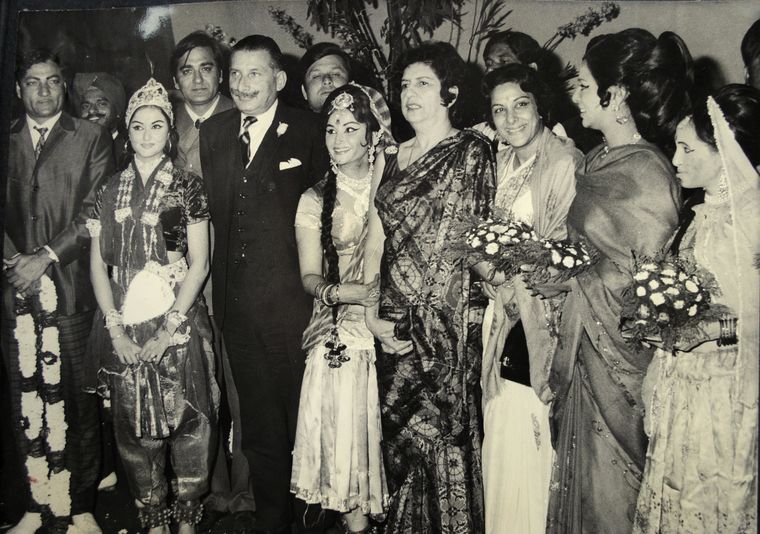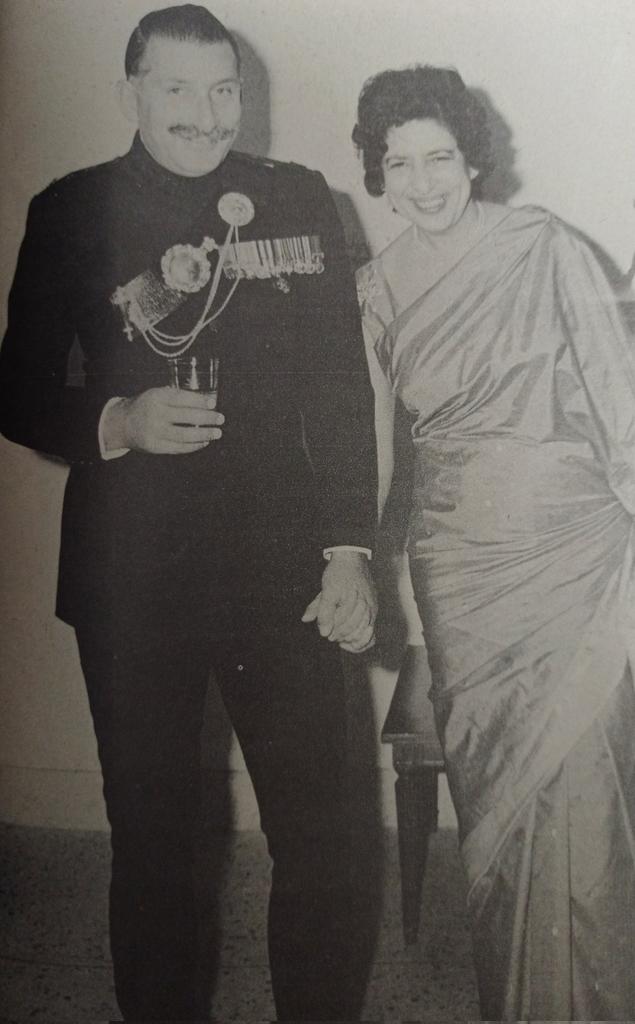Siloo Manekshaw: A Look At A True Leader's Enduring Spirit
Have you ever stopped to think about the people who truly shape a nation's story? Those individuals whose courage and conviction leave a mark that lasts for generations? Well, today, we're going to talk about someone just like that, a figure whose name, Siloo Manekshaw, resonates with strength and a deep sense of duty. He was, you know, a man of remarkable character, someone who led with both a sharp mind and a warm heart, and his story is still so inspiring, even now.
His journey, from a young cadet to the highest rank in the Indian military, is a compelling one, full of moments that show what genuine leadership looks like. It's about more than just battles and strategies; it's about the spirit of a person who stood tall, faced challenges head-on, and always put his people first. We often hear about heroes, and Siloo Manekshaw, or Sam Bahadur as he was affectionately known, absolutely fits that description.
This article aims to give you a good sense of his life, his contributions, and the lasting impact he had on India and its armed forces. We'll explore what made him such an effective leader and why his legacy continues to matter, even today, in our sometimes very complex world. It's a story worth knowing, a story that, you know, really shows the human side of military greatness.
Table of Contents
- Biography of Siloo Manekshaw
- Personal Details and Bio Data
- Leadership Style and Philosophy
- Legacy and Impact
- Frequently Asked Questions About Siloo Manekshaw
- A Lasting Mark on History
Biography of Siloo Manekshaw
Siloo Manekshaw, born Sam Hormusji Framji Jamshedji Manekshaw, was a truly remarkable individual whose life story is, in some respects, a reflection of India's own journey through the 20th century. He saw immense change and played a very direct role in shaping his country's destiny. His path was not always smooth, but his spirit, you know, always shone through, and that's a pretty big deal.
Early Life and Education
Born on April 3, 1914, in Amritsar, Punjab, Siloo Manekshaw came from a Parsi family with roots in Valsad, Gujarat. His father was a doctor, and the family, you know, had a comfortable life. He received his early schooling at Sherwood College in Nainital, a pretty prestigious institution. Even then, his sharp mind and independent nature were quite apparent, so it's not surprising he went on to do great things.
He actually wanted to study medicine, just like his father. But, as a matter of fact, a disagreement with his father about attending a specific university led him to take the entrance exam for the Indian Military Academy (IMA) in Dehradun. He passed with flying colors, becoming part of the first batch of cadets, known as the "Pioneers," in 1932. This decision, you know, changed his life's direction entirely.
Military Career Beginnings
After graduating from the IMA in 1934, Siloo Manekshaw was commissioned into the British Indian Army. His early years in the service were spent with the 2nd Battalion, Royal Scots, and later with the 12th Frontier Force Regiment. He quickly gained a reputation for his quick thinking and his ability to connect with the soldiers under his command, something that, you know, is really important for a leader.
He was, in a way, a natural leader, someone who understood the needs of his troops. This early experience, basically, laid the groundwork for the incredible career that would follow. He learned the ropes, saw how things worked, and began to develop his own unique approach to military life, which was pretty distinct, actually.
World War II Experience
The Second World War provided Siloo Manekshaw with his first major test of combat. He served with distinction in Burma, fighting against the Japanese. During one intense engagement in 1942, he was, you know, very seriously wounded by machine-gun fire. His injuries were so severe that he was thought to be dead, but his courage and resilience, apparently, kept him alive.
A British General, Major General David Cowan, actually pinned his own Military Cross ribbon on Manekshaw's chest right there on the battlefield, recognizing his bravery even as he lay wounded. This act, you know, truly highlighted the respect he commanded even early in his career. He recovered and continued to serve, taking part in various staff and command roles, which, in some respects, prepared him for even bigger responsibilities.
Post-Independence and Rise to Prominence
After India gained independence in 1947, Siloo Manekshaw was instrumental in the reorganization of the Indian Army. He held several important positions, including Director of Military Operations. He played a key role in the 1947-48 Kashmir War, demonstrating his strategic acumen. His career, you know, continued its steady climb, marked by his intelligence and his outspoken nature.
He was, basically, someone who wasn't afraid to speak his mind, even to political leaders, and that quality, you know, sometimes got him into trouble, but it also earned him immense respect. He served as commandant of the Defence Services Staff College and commanded various corps, always leaving a positive mark wherever he went. He was, in a way, building a reputation as a no-nonsense, yet fair, officer.
The 1971 War: His Defining Moment
The defining moment of Siloo Manekshaw's career came during the 1971 Indo-Pakistani War, which led to the creation of Bangladesh. As the Chief of Army Staff, he was, quite frankly, the architect of India's decisive victory. He famously resisted political pressure to launch an immediate offensive, insisting on waiting until the army was fully prepared, which, you know, was a very brave stance to take.
His careful planning, his ability to coordinate with the Navy and Air Force, and his unwavering confidence in his troops were, in some respects, key to the swift and successful outcome. The war, which lasted just 13 days, saw the surrender of nearly 90,000 Pakistani soldiers, a truly historic event. His leadership during this period, you know, cemented his place as one of India's greatest military commanders.
Field Marshal and Retirement
In recognition of his extraordinary service and his pivotal role in the 1971 victory, Siloo Manekshaw was promoted to the rank of Field Marshal in 1973, becoming the first Indian Army officer to achieve this five-star rank. This was, you know, a huge honor, and one that was richly deserved. He retired from active service later that year, but his influence, you know, continued to be felt for many years.
Even in retirement, he remained a respected voice on military matters and a beloved public figure. He passed away on June 27, 2008, at the age of 94, leaving behind a legacy of courage, integrity, and unparalleled leadership. His life, in a way, serves as a powerful reminder of what one person can achieve with dedication and a strong moral compass.
Personal Details and Bio Data
Here's a quick look at some personal details about Siloo Manekshaw, providing a glimpse into the man behind the uniform. This information, you know, helps paint a fuller picture of who he was, beyond his military achievements.
| Attribute | Detail |
|---|---|
| Full Name | Sam Hormusji Framji Jamshedji Manekshaw |
| Popularly Known As | Sam Bahadur |
| Date of Birth | April 3, 1914 |
| Place of Birth | Amritsar, Punjab, British India |
| Date of Demise | June 27, 2008 |
| Place of Demise | Wellington, Tamil Nadu, India |
| Spouse | Siloo Manekshaw (née Bode) |
| Children | Sherry and Maya |
| Military Rank | Field Marshal |
| Awards & Decorations | Military Cross, Padma Vibhushan, Padma Bhushan, etc. |
| Alma Mater | Indian Military Academy, Dehradun |
| Service | British Indian Army, Indian Army |
Leadership Style and Philosophy
What truly set Siloo Manekshaw apart was not just his strategic brilliance, but his distinctive leadership style. He wasn't just a commander; he was, you know, a mentor, a motivator, and someone who genuinely cared about his troops. His approach to leadership was, in some respects, quite unique, blending strict discipline with a very human touch, and that's pretty rare, actually.
Integrity and Courage
One of the most striking aspects of his leadership was his absolute integrity and moral courage. He was never afraid to speak truth to power, whether it was to politicians or even Prime Ministers. He believed in doing what was right, not what was easy or politically convenient. This quality, you know, earned him immense respect, even from those who might not have always agreed with him.
His courage wasn't just on the battlefield; it was also the courage to stand by his convictions, to demand proper resources for his army, and to ensure that his soldiers were always treated with dignity. He was, in a way, a guardian of the army's honor, and that's a pretty big responsibility, you know.
Humor and Wit
Siloo Manekshaw was famous for his sharp wit and his wonderful sense of humor. He used humor, often self-deprecating, to ease tension, connect with people, and sometimes, you know, to make a point without being overly confrontational. Stories of his witty remarks are legendary within the Indian armed forces and beyond. He was, honestly, quite a character.
This lighter side didn't diminish his authority; if anything, it made him more approachable and relatable. It showed that even at the highest levels of command, there was a human being who could laugh, and that, you know, is something people truly appreciate in a leader. It's just a little touch that made him stand out.
The Soldier's General
Above all, Siloo Manekshaw was known as "The Soldier's General." He had a deep affection for his troops and understood their needs, their fears, and their aspirations. He made it a point to visit them, talk to them, and ensure their welfare. He believed that a leader's primary duty was to look after the men under his command, and that, you know, really resonated with them.
He often said, "You must be truthful to your men, you must be honest with them, and you must love your men." This philosophy, you know, guided his every action. He knew that a motivated and well-cared-for army was a strong army. This connection with his soldiers was, basically, a cornerstone of his success, making him a truly beloved figure.
Legacy and Impact
The impact of Siloo Manekshaw on the Indian Army and on the nation itself is, you know, truly profound. His contributions go far beyond the victories he secured; they extend to the very culture and ethos of the armed forces. He left behind a legacy that continues to inspire, and that's pretty special, actually.
Shaping the Indian Army
Siloo Manekshaw played a critical role in shaping the modern Indian Army. He instilled a sense of professionalism, discipline, and pride that continues to this day. He advocated for better training, equipment, and welfare for soldiers. His leadership during the 1971 war, in some respects, proved the mettle of the Indian armed forces on the global stage, earning them respect and recognition.
He was, in a way, a visionary who saw the potential of the Indian military and worked tirelessly to realize it. His emphasis on ethical conduct and his unwavering commitment to his troops helped build an army that was not only capable but also deeply respected by its own people. This dedication, you know, really made a difference.
Inspiration for Generations
Even years after his passing, Siloo Manekshaw remains an iconic figure and a source of inspiration for countless individuals, both within and outside the military. His life story is often taught in leadership courses, highlighting the importance of integrity, courage, and decisive action. His quotes and anecdotes are, you know, still widely shared, offering timeless wisdom.
He represents a standard of excellence and a commitment to national service that few can match. For young people considering a career in the armed forces, his life serves as a powerful example of what can be achieved with dedication and a genuine love for one's country. His spirit, you know, truly lives on, and that's something to think about.
Frequently Asked Questions About Siloo Manekshaw
People often have questions about this remarkable individual. Here are some common queries that, you know, might help you learn a little more about him.
What was Siloo Manekshaw's most famous achievement?
His most famous achievement was leading the Indian Army to a decisive victory in the 1971 Indo-Pakistani War, which resulted in the creation of Bangladesh. This was, in some respects, a truly historic military triumph, and he was, you know, the main architect behind it.
Why was Siloo Manekshaw called Sam Bahadur?
He was affectionately called "Sam Bahadur" by the Gorkha soldiers, which translates to "Sam the Brave" or "Sam the Fearless." This nickname, you know, reflects the deep respect and affection his troops had for him, and it stuck throughout his career, which is pretty cool.
Did Siloo Manekshaw ever serve as a politician?
No, Siloo Manekshaw never served as a politician. He was, you know, a career military officer and always maintained a clear distinction between the military and political spheres. He was known for his strong opinions but always operated within the framework of his military role, which is, honestly, a very important thing.
A Lasting Mark on History
Siloo Manekshaw was, you know, truly a titan of his time, a leader whose vision and integrity helped shape a nation's military future. His story isn't just about battles won or ranks achieved; it's about the kind of person who stands up for what's right, cares deeply for his people, and inspires confidence in everyone around him. He showed us what true leadership looks like, in every sense of the word.
His legacy, that, is still very much alive, serving as a guiding light for those who aspire to lead with courage and conviction. Learning about figures like Siloo Manekshaw helps us appreciate the sacrifices and dedication that go into building a strong and secure nation. We can all, in a way, learn something from his remarkable life.
To discover more about the incredible individuals who have shaped India's history, you can learn more about military leaders on our site. Also, if you're interested in understanding the broader context of the 1971 war, you might find more information on this page, which, you know, could be pretty interesting.
For further reading and a deeper understanding of Field Marshal Sam Manekshaw's life and contributions, you can explore resources like the official Indian Army website, which, you know, provides valuable insights into his distinguished career. It's a great place to get more details, actually.

Sam Manekshaw Wiki, Age, Height, Death, Wife, Family, Biography, and

Sam Manekshaw through the eyes of his family and friends- The Week

1980s :: Field Marshal Sam Manekshaw With Wife Siloo : IndiaHistoryPics